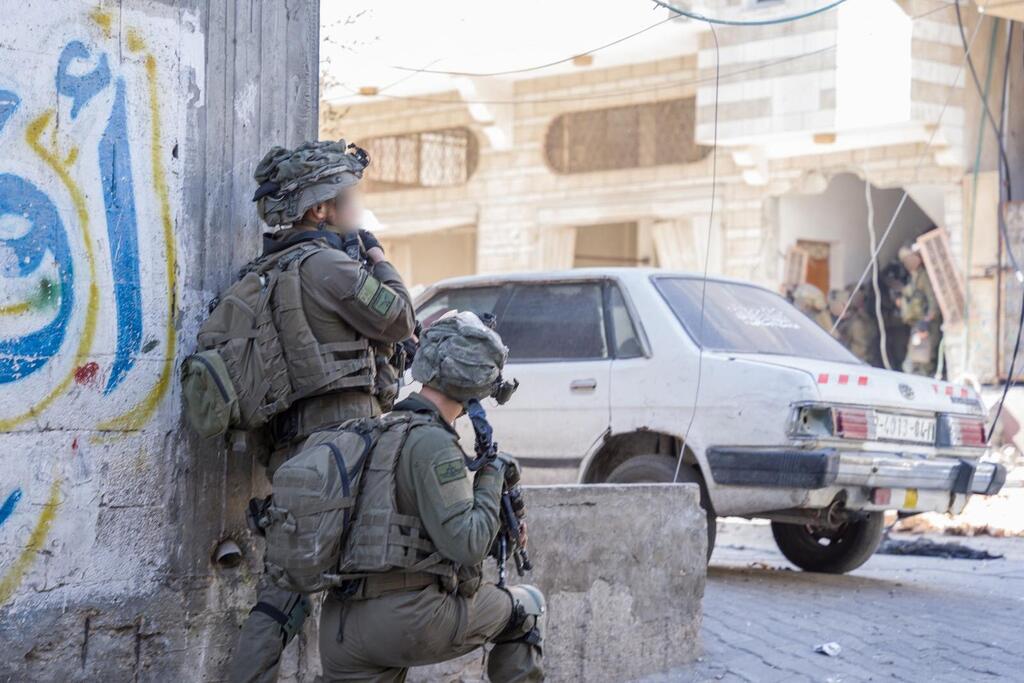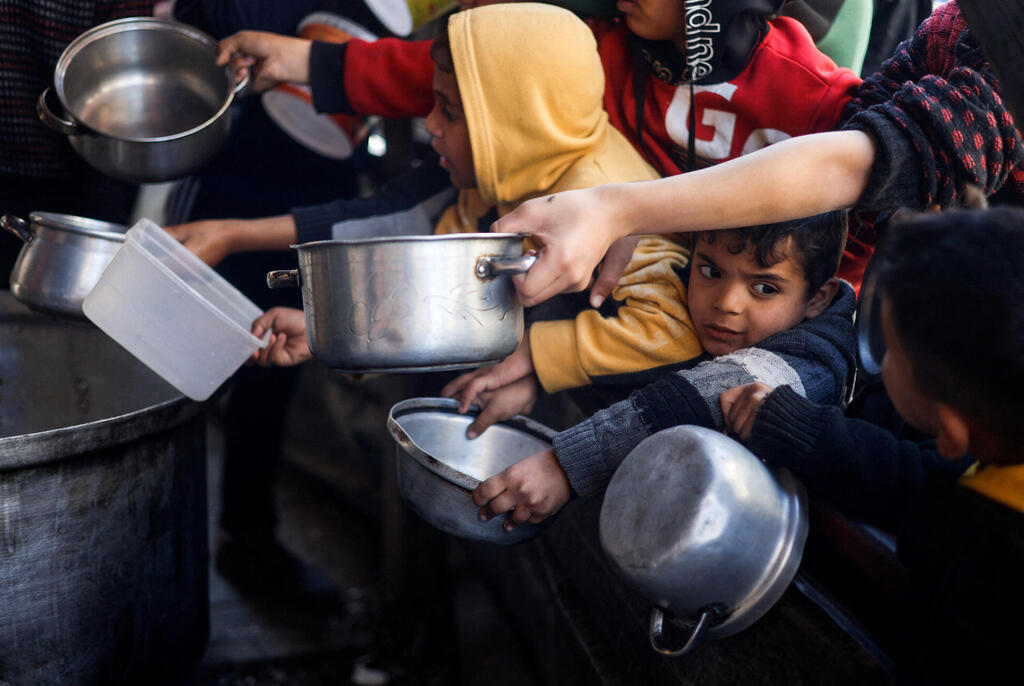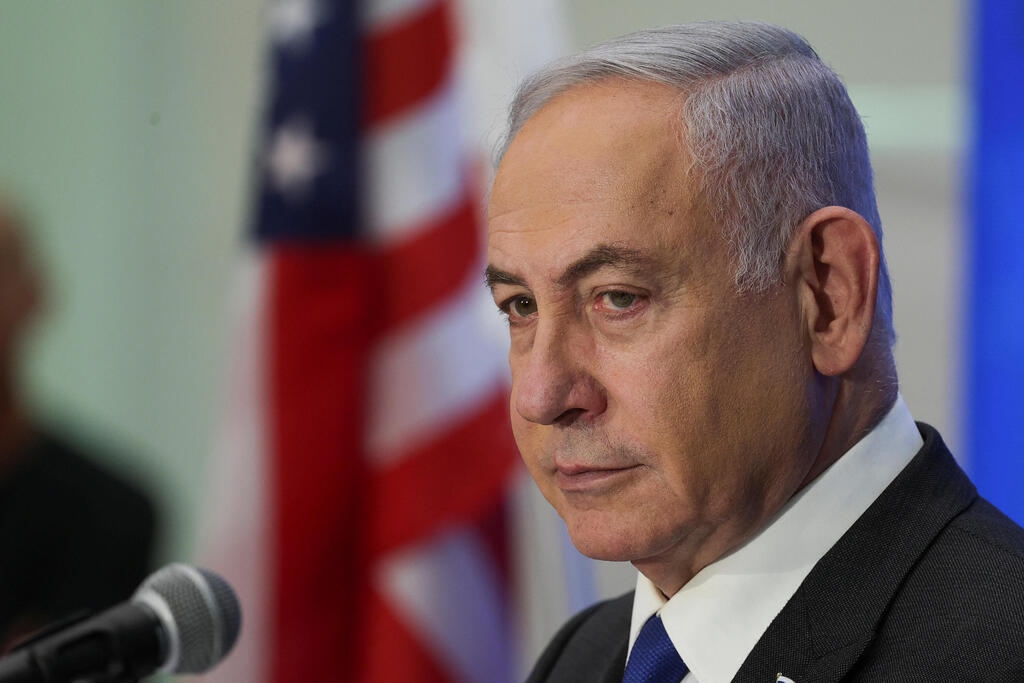Getting your Trinity Audio player ready...
As the conflict in Gaza persists, Israel awaits Hamas' response to the most recent cease-fire proposal. Amid reports suggesting that the Biden administration might restrict the transfer of arms to Israel if IDF initiates a military operation in Rafah, global attention is now drawn to Palestinian testimonies from the IDF's operation in a Khan Younis hospital last month.
Read more:
The BBC recently reported that British Foreign Secretary David Cameron is seeking "answers from Israel" following the receipt of "disturbing evidence" of violent arrests of medical teams. The Guardian also reported that at least 13 patients died following the entry of forces into the hospital.
Destruction in Gaza hospital following IDF attack
The BBC report included testimonies from three doctors at the hospital, claiming that IDF soldiers humiliated and assaulted them. It was also alleged that Palestinians detained by the forces were "forced to kneel for hours." The British broadcaster noted that it had investigated these stories for several weeks and cross-referenced information, finding the evidence remained consistent. However, many of the sources cited in the report are from the Palestinian Ministry of Health, which is managed by Hamas.
The IDF stated that its intelligence indicated that Hamas terrorists were present at the hospital. It also determined through evidence found there that Israeli hostages taken captive by Hamas on October 7 were held at the hospital, with some of them publicly confirming this. The IDF did not respond to specific reports of abuse but denied that any medical team was harmed. "Any abuse of detainees is contrary to orders and is therefore absolutely forbidden," the IDF said in a statement. The terrorist organization Hamas denied that its members operate within medical facilities.
On Wednesday morning, additional testimonies from the Wall Street Journal alleged that suspects taken from the Gaza Strip to detention in Israel "suffered physical and mental abuse. They were stripped, held in isolation, beaten during interrogations and often denied sleep." The newspaper referred to the testimony of Gazan journalist Mohammed Obeid, who claimed he was taken by IDF soldiers when he left his home. According to him, the soldiers ordered him to remove his clothes, handcuffed him, and put him on a truck.
"I was with other detainees. They took us to an open area with several low buildings. For six hours they interrogated me with my hands tied above my head. They asked me about Hamas tunnels and hostages, and they took turns punching me. After 40 days they acquitted me, photographed me with an Israeli flag and released me," Obeid claimed.
The IDF responded to the report and stated that "violent and abusive" treatment of detainees is forbidden and contrary to the Israeli military's beliefs and values. "Detainees are treated in accordance with international law. They all receive food and medical care, and are given the opportunity to pray and sleep," the IDF told reporters.
Aside from the extensive focus on the military operation at the hospital, which was previously the largest functioning hospital in the Strip, global reports are also highlighting the famine crisis in Gaza. Last week, the UN reported that at least 10 children have already died from malnutrition. Josep Borrell, the High Representative of the European Union for Foreign Affairs and Security Policy, told the Wall Street Journal that "Hunger is being used as a weapon of war."
Borrell further argued that the severe shortage of humanitarian aid in Gaza is a "man-made disaster," attributing its cause to Israel's refusal to allow aid trucks to enter northern Gaza directly. "We are seeking alternatives to land-based aid, delivering it by air and sea. As hunger is being weaponized, we must condemn what is happening in Gaza - just as we do in Ukraine," he said.
In contrast, it was reported today that for the first time, a convoy from the World Food Program (WFP) used a new land route constructed by the IDF parallel to the fence. Consequently, aid trucks were able to enter the Netzarim corridor in the northern Strip via "Crossing 96," adjacent to Kibbutz Be'eri.
Foreign press says Israel in peril because of Netanyahu
The global media has not overlooked Prime Minister Benjamin Netanyahu. Thomas Friedman, a columnist for the New York Times who visited the Erez Crossing at the beginning of the month, asserted on Tuesday that "Israel is in grave danger." He ascribed this danger to security threats such as Hamas in the Gaza Strip, Hezbollah on the northern border, and even the Houthis in the Red Sea. However, his primary focus was on Netanyahu.
Friedman contended that due to the manner in which the prime minister and his extreme coalition are handling the war in Gaza and the occupation of the West Bank, Israel is becoming increasingly isolated. He further noted that this is exacerbating the sense of insecurity in Jewish communities around the world, adding, "I fear the situation will deteriorate."
Friedman accused Netanyahu of deploying the IDF to the Gaza Strip "without a coherent plan" for the aftermath. He suggested that Netanyahu is refraining from making public statements on the matter due to fears that his far-right party colleagues, including National Security Minister Itamar Ben-Gvir, might attempt to remove him from power. This claim is, among other things, tied to the severe criticism that U.S. President Joe Biden has directed at the prime minister, stating that "Netanyahu is causing more harm than good to Israel."








